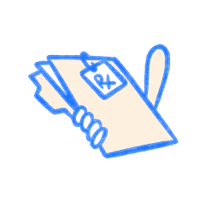Online Nurse Practitioner Programs to Become an NP
At the beginning stages of my journey into the world of nursing, I had my sights set on being at the top end of my licensure profession. Although that goal seemed to be in the far distant future, I began preparing for when that day would come. I set short-term attainable goals while keeping my eye on the prize of course. A part of setting goals is doing your research and gathering as much information as possible so that you have a wealth of options to choose from. Deciding to study online for some may seem to be a daunting task. However, I assure you that academic institutions have realized this and tailored their programs to meet the needs of working professionals such as yourself. With that said, understand that there are a ton of fly-by-night institutions with programs that may not be the best fit for you. Just be sure to investigate the school thoroughly and make sure they meet specific requirements set by state and federal licensure guidelines and national certifying bodies.
Online Study
If you have not experienced attending classes online then this will hopefully help you understand what to expect. When it comes to getting your Master of Science Degree in nursing through an online venue it is important to know what type of learner you are. Online degree programs favor the planner and those who organize themselves well. Furthermore, online Graduate nursing degree programs require that the student is in the right mind frame before starting, maintain a well-kept calendar and finally resist procrastination. Although online programs provide convenience, you are expected to be the learning type who is independent and capable of working autonomously. Online students do not have the luxury of attending on-site classes when participating in the online format so real-time class reminders, help from personal encounters and professors being that sounding board are essentially nonexistent. Depending upon your goals, most major academic institutions offer various routes to obtaining the Nurse Practitioner degree. You can choose the BSN-DNP (Doctor of Nurse Practice) route or the traditional BSN-MSN route. The choice is yours to make. One important thing to note and see in writing is that if you do choose the BSN-DNP track, just be sure that you investigate whether or not you will gain eligibility to test for board certification and requirements met for licensure once finished with the MSN portion of the BSN-DNP track. Otherwise, you may have to wait until you complete the DNP program in order to submit for eligibility.
What to Expect
Nurse Practitioner programs have specific core courses of study that must be completed in order to be eligible to sit for National Board Certification exams. Here is a list of core courses you can expect to complete:
- Advanced Health Assessment
- Advanced Pathophysiology
- Advanced Pharmacology
- Advance Practice Leadership Course
- Quality Improvement Course
- Health Promotion and Disease prevention Across the Lifespan
- Health Policy and Advocacy Course
- Evidence Based Practice Nursing Course
In addition to these core courses and depending upon your choice of profession, expect to take specific specialty courses that will meet the requirements of state, federal and credentialing certification and licensure regulations. For example, a student studying to become a Board Certified (BC) Psychiatric Mental Health Nurse Practitioner will take the following courses:
- Neuroscience Principles and Concepts
- Advanced Psychiatric and Mental Health Nursing
- Pediatric Primary Care Practicum I
- Psychiatric and Mental Health Nursing Clinical Practicum I (300 hours)
- Psychiatric and Mental Health Nursing Clinical Practicum II (300 hours)
Once the student has completed all of the core and specialty courses with a grade of B or greater they will be eligible to sit for their respective national board certification. Remember, you must get a minimum grade of B in each course in order to move on in the program and graduate. Any grade lower than a B will require a repeat. Once you graduate from your program and achieve board certification in your specialty you are eligible for state licensure. Some states do not require board certification for licensure; however, unless you plan on practicing on a cash pay basis you need to be board certified. Board certification is essential in that you will not be considered at the top of your ability in the community, you will not be eligible for credentialing and you will not be able to bill insurance. This hinders your value as a Nurse Practitioner and closes the door to almost all job prospects. It’s all about the obtaining board certification and I cannot stress the “BC” credentials enough.
What is Board Certification and how do I become Board Certified?
This is a great question and, believe it or not, many prospective Nurse Practitioner students ask it. The American Nurses Credentialing Center or ANCC is an example of a well-known board certifying body for nursing professions. As a Board Certified Psychiatric Mental Health Nurse Practitioner (PMHNP-BC), ANCC was my certifying body. The American Nurses Credentialing Center offers board certification for Nurse Practitioner students studying the following specialties:
- Adult-Gerontology Acute Care (AGACNP-BC)
- Adult-Gerontology Primary Care (AGPCNP-BC)
- Family Nurse Practitioner (FNP-BC)
- Pediatric Primary Care (PPCNP-BC)
- Psychiatric Mental Health Across the Lifespan (PMHNP-BC)
Once you finish your program you will work with your school to complete the necessary steps required to be able to test for board certification. This will require that you submit a form(s) provided by the certifying body. Typically, you are able to obtain this form on the certification institutions website. Simply download the form, complete your sections and submit to your school for completion, signature, and submission to the certification body administration department. It is important to check the status on your application weekly to ensure that you submitted everything you need and that the form was completed to their satisfaction. Once the certifying institution verifies your eligibility you will get notified that you are eligible to test. This is where the fun begins.
Studying for board certification
So you have finished your program, completed the required exhaustive process of obtaining your needed clinical hours and are now on the cusp of getting your Nurse Practitioner license. The only thing left is the golden ticket, better known as board certification. I remember this part of my journey. I recount thanking my wife and family for their well-meaning heartfelt congratulatory accolades for finishing my Master’s Degree program. I also remember thinking to myself, it means nothing without board certification. If only it were equitable at graduation but in all honesty, the degree is only an expensive piece of paper on the wall without passing the board certification test.
So how did I do it? What brings success to the now former student with a degree placed so gently in that stylish $250.00 frame? Study tools! That is right, a solid arson of study tools which have been tried, tested and trued – intentionally tailored to the subject being studied. When studying for your Nurse Practitioner board certification it is important to have a couple of essential items at your disposal. First and foremost you need the book. Yes, the book. Your specific certifying credentialing body will have a manual which covers your specialty. Steer clear from alternate book sources and go straight to the people who write the test you are taking and use their book as the standard you read and study from. I mentioned in my ATI TEAS review that many students make the cardinal mistake of spreading themselves out too thin by purchasing unnecessary books and tools that promise success. Furthermore, I mention that “less is more” when it comes to structuring your study efforts.
Finally, the second study aid that is imperative to be successful in passing this test is having a solid set of test questions such as an application that provides a bank of test questions. Pocket Prep is a technology-based app platform that will without a doubt meet your needs. About midway through my Nurse Practitioner program, I came across Pocket Prep and decided to start using it early. I found that Pocket Prep was concise, detailed enough to cover what I needed to prepare for the test and offered an enormous amount of questions in each category I needed to know and be proficient in. As I drew closer to test day I engaged in utilizing the app more frequently. As time went on and the more I utilized this tool, the better my test scores became. Not only did my test scores improve but also I was able to see my progress, focus on areas of weakness and streamline my efforts in a greater way. Pocket Prep measures your success by providing feedback in the form of statistical data that shows the preparer where they need to focus more time on. By the time I was ready for board certification testing I was hitting in the high 80 – 90 percentile range. Pocket Prep gave me the confidence I needed going into the test and gave me the success I so desired in becoming a board-certified Nurse Practitioner. The most valuable takeaway for me posttest was the congruence of Pocket Prep with my specific test. It was almost as if I was reading Pocket Prep questions. I had taken many other test bank questions from other providers and even purchased an IQ test bank from the certifying body but none were as close to the real thing except for Pocket Prep. Pocket Prep without a doubt was essential in my success at passing the ANCC board certification test. Because of Pocket Prep, I now have a degree that is equitable and am practicing at the top end of my scope of practice.


